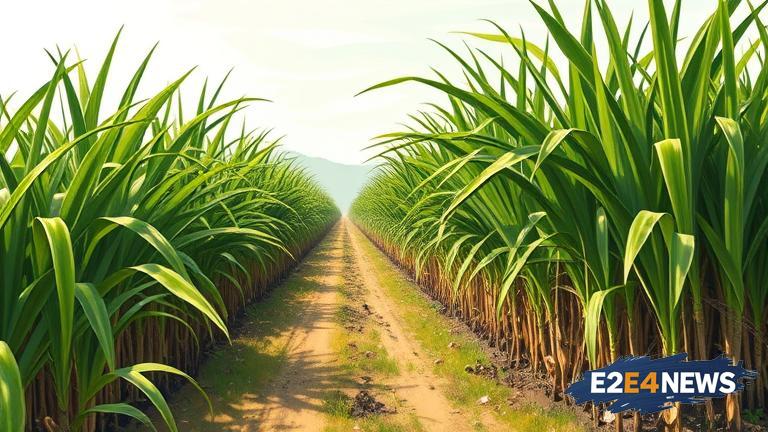The sugarcane industry has long been associated with environmental degradation, social injustices, and economic instability. However, Bonsucro, a non-profit organization, is working to change this narrative by promoting sustainable sugarcane production practices. With its robust set of standards, Bonsucro is empowering farmers, producers, and suppliers to adopt environmentally friendly and socially responsible methods. This approach not only benefits the environment but also ensures fair labor practices, improves working conditions, and enhances the livelihoods of sugarcane farmers and their communities. By adopting Bonsucro’s standards, sugarcane producers can reduce their environmental footprint, conserve water and energy, and promote biodiversity. Moreover, Bonsucro’s certification program provides a framework for producers to demonstrate their commitment to sustainability, which can lead to increased market access and premium prices for their products. The organization’s efforts have already shown significant results, with many sugarcane producers and suppliers achieving certification and improving their sustainability performance. Bonsucro’s impact extends beyond the sugarcane industry, as its standards and certification program can be applied to other agricultural sectors, promoting a broader shift towards sustainable agriculture. The organization’s work is also aligned with the United Nations’ Sustainable Development Goals (SDGs), particularly Goal 2 (Zero Hunger), Goal 6 (Clean Water and Sanitation), and Goal 12 (Responsible Consumption and Production). Furthermore, Bonsucro’s approach recognizes the importance of smallholder farmers, who are often the backbone of rural communities, and provides them with the necessary support and resources to improve their productivity and livelihoods. In addition, Bonsucro’s standards address key social issues, such as child labor, forced labor, and gender equality, ensuring that sugarcane production is not only environmentally sustainable but also socially responsible. The organization’s membership comprises a diverse range of stakeholders, including farmers, producers, suppliers, NGOs, and governments, demonstrating its commitment to collaboration and inclusivity. Bonsucro’s work has also been recognized by international organizations, such as the International Finance Corporation (IFC) and the World Wildlife Fund (WWF), which have partnered with the organization to promote sustainable sugarcane production. As the global demand for sustainable products continues to grow, Bonsucro’s certification program is well-positioned to meet this demand, providing consumers with assurance that the sugarcane products they purchase are produced in an environmentally and socially responsible manner. In conclusion, Bonsucro’s efforts to promote sustainable sugarcane production are revolutionizing the industry, and its impact will be felt for generations to come. The organization’s commitment to environmental stewardship, social responsibility, and economic viability is a testament to the power of collaborative action and sustainable practices. As the world continues to grapple with the challenges of climate change, social inequality, and economic instability, Bonsucro’s approach offers a beacon of hope for a more sustainable future. With its robust standards, certification program, and collaborative approach, Bonsucro is sowing the seeds of change in the sugarcane industry, and its impact will be felt far beyond the fields of sugarcane farmers.
